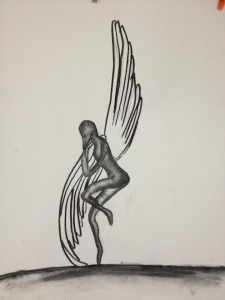Did you know diabetes can affect your...
 Did you know that diabetes can affect your eyes?
Did you know that diabetes can affect your eyes?
- The capillaries weaken and may leak fluid.
- Capillaries may become blocked.
- If capillaries get blocked this reduces oxygen to the retina.
- New capillaries may develop causing blurred vision, these may bleed and cause further damage to the retina.
- You may start by cutting back on your intake of red meat, like salami and other processed meats. Increase your intake of Omega 3 fats sucha as fish.
- Eat Low GI: as blood sugar spikes can damage your retina.
- Cut out Smoking: Smoking is one of the major causes of failing eyesight.
- Exercise: A well balanced diest with vigorous exercise has shown to delay age-related vision loss.
- Check your eyes: Regular visits as a diabetic are paramount to saving your eyes from blindness. At the very least check your eyes every twelve months.
 Did you know that diabetes can affect your feet?
Did you know that diabetes can affect your feet?
What is neuropathy?
There are four main types of diabetic neuropathy. You may have just one type or symptom or several types. Some develop gradually, and other symptoms you may not notice problems until considerable damage has occurred. The signs and symptoms of diabetic neuropathy vary, depending on the type of neuropathy and which nerves are affected, Diabetics have a much higher risk of developing foot problems if you have suffered from high sugar levels for a period of time, damaged nerves and blood vessels may lead to neuropathy.
Peripheral Neuropathy: This is the most common, affecting the feet and legs followed by the hands and arms.Signs and symptoms of peripheral neuropathy are often worse at night, and may include:
- Numbness or reduced ability to feel pain or temperature changes
- A tingling or burning sensation, sharp pains or cramps
- Increased sensitivity to touch — for some people, even the weight of a bed sheet can be agonising
- Muscle weakness
- Loss of reflexes, especially in the ankle
- Loss of balance and coordination
- Serious foot problems, such as ulcers, infections, deformities, and bone and joint pain.
 Did you know that diabetes can affect your Heart?
Did you know that diabetes can affect your Heart?
Managing Diabetes can be a challenge, however to avoid heart disease and the complications that come along with it, the heart foundation recommends being physically active, enjoying healthy eating and staying a healthy weight, These three are the key factors to keeping this complication at bay. You should also:
- Stop smoking
- Manage your Blood Pressure
- Manage your Cholesterol
- Regularly see your doctor for diabetes reviews.
Ischaemic heart disease is the most common of cardiovascular disease, this is when the vessels of the heart are damaged and cause a heart attack. Cardiovascular disease is the highest cause of death in Australia, and people with diabetes are 3 to 4 times more likely to develop cardiovascular disease than those without diabetes.
Symptoms can vary from chest pain, to shortness of breath, palpitations or irregular beats.
There are also more common symptoms of heart disease, and some not so common as a diabetic your symptoms may vary. If you are ever unsure and feel you may be having any symptoms call an ambulance or emergency as soon as possible.
Did you know that diabetes can affect your Nerves?
There are four main types of diabetic neuropathy. You may have just one type or symptom or several types. Some develop gradually, and other symptoms you may not notice problems until considerable damage has occurred.The signs and symptoms of diabetic neuropathy vary, depending on the type of neuropathy and which nerves are affected, Diabetics have a much higher risk of developing foot problems if you have suffered from high sugar levels for a period of time, damaged nerves and blood vessels may lead to neuropathy.h
The four types are:
- Peripheral neuropathy: This is the most common, affecting the feet and legs followed by the hands and arms.
- Autonomic neuropathy: The autonomic nervous system controls your heart, bladder, lungs, stomach, intestines, sex organs and eyes. Diabetes can affect the nerves in any of these areas.
- Radiculoplexus neuropathy (diabetic amyotrophy): Radiculoplexus neuropathy affects the nerves in the thighs, hips, buttocks or legs. It is also called diabetic amyotrophy, femoral neuropathy or proximal neuropathy, this type of nerve damage is more common in people with type 2 diabetes and older adults.
- Mononeuropathy: Mononeuropathy is damage to a specific nerve. This damaged nerve may be in the face, torso or leg. Mononeuropathy is also called focal neuropathy and often comes on suddenly. It is most common in older adults.




